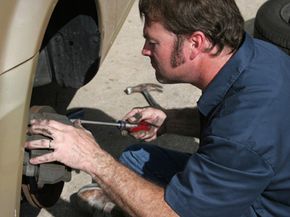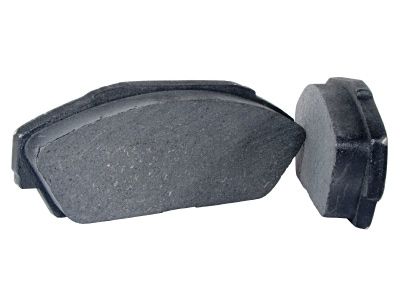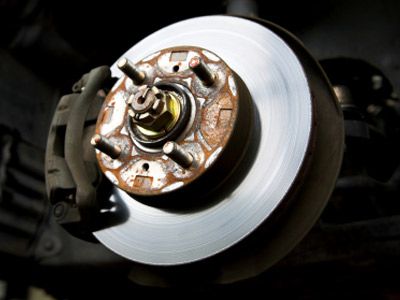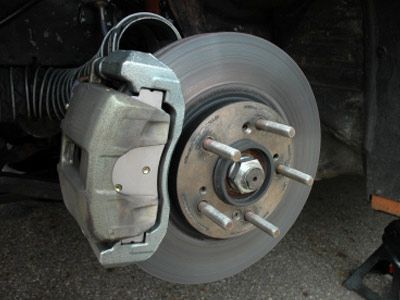Fixing squealing brakes involves identifying the cause of the noise and addressing it appropriately. Here are some steps you can take to eliminate the squeaking:
Inspect Brake Pads
The first step is to check the condition of your brake pads. If they are worn down to less than a quarter inch, it's time for new pads. Consider choosing brake pads with a lower metal content if high metal content is the issue.
Clean the Brakes
Dust and debris can be removed by cleaning the brakes with a brake cleaner spray. Ensure the area around the brake pads and rotors is clean and free of any foreign particles.
Check for Glazing
If your brake pads or rotors are glazed, they may need to be replaced or resurfaced. Resurfacing the rotors can restore their smooth surface and eliminate squeaking.
Lubricate Moving Parts
Applying brake lubricant to the caliper slides and other moving parts of the braking system. When done correctly, lubrication can prevent the squeaking noise caused by friction.
Professional Inspection
If you've tried these steps and the squeaking persists, it's advisable to seek a professional mechanic's inspection. There could be more complex issues at play, such as problems with the brake caliper or rotor misalignment.
Remember: Brakes are designed to make noises when they're going bad to warn you, so it's actually a good thing. It's certainly better to find out your brakes are going bad by hearing a squeak than jamming on the brake and not being able to stop.



